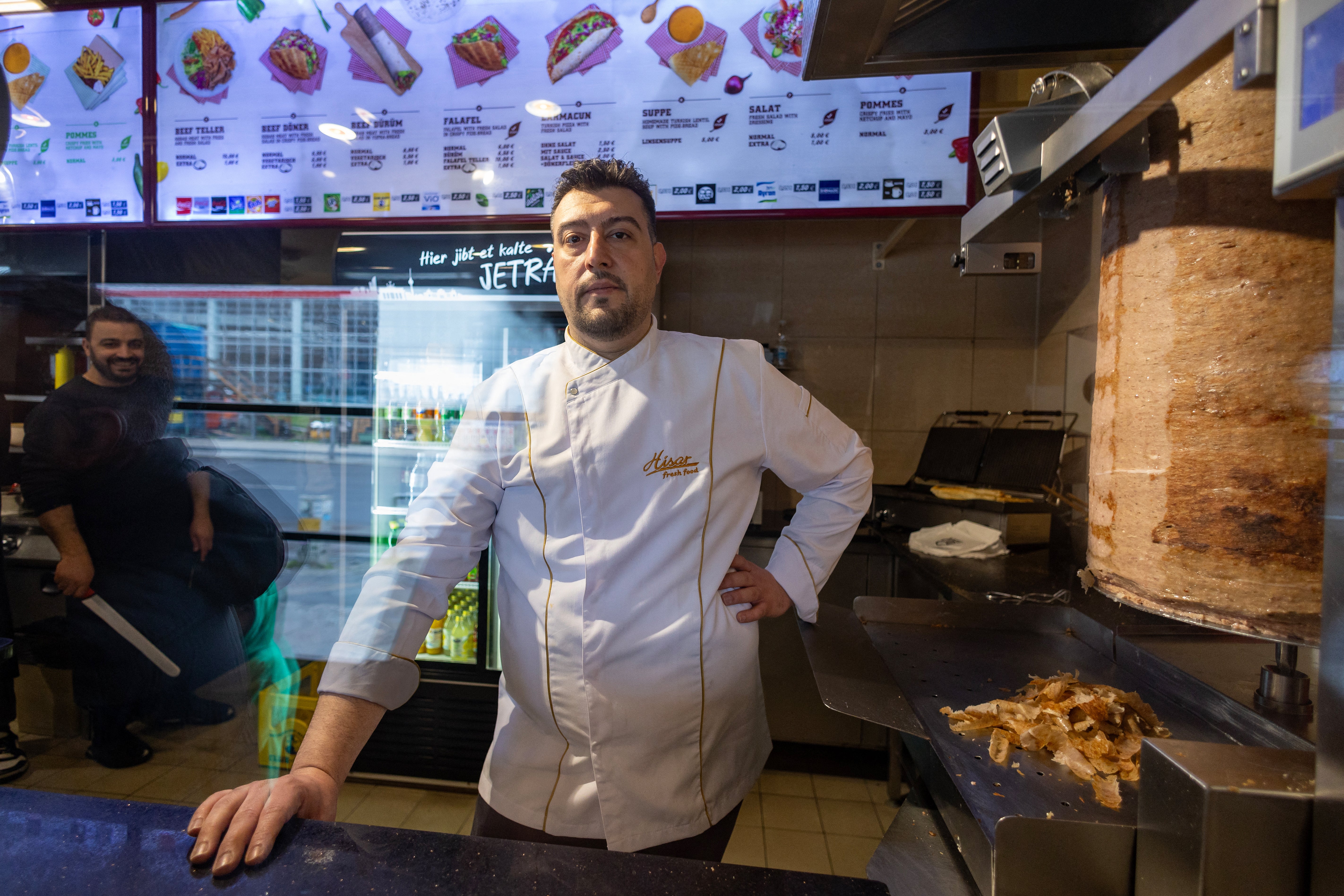Calls for a price cap on soaring kebab costs in Germany
The price of a doner kebab in Germany has more than doubled in what is being called donerflation

Your support helps us to tell the story
From reproductive rights to climate change to Big Tech, The Independent is on the ground when the story is developing. Whether it's investigating the financials of Elon Musk's pro-Trump PAC or producing our latest documentary, 'The A Word', which shines a light on the American women fighting for reproductive rights, we know how important it is to parse out the facts from the messaging.
At such a critical moment in US history, we need reporters on the ground. Your donation allows us to keep sending journalists to speak to both sides of the story.
The Independent is trusted by Americans across the entire political spectrum. And unlike many other quality news outlets, we choose not to lock Americans out of our reporting and analysis with paywalls. We believe quality journalism should be available to everyone, paid for by those who can afford it.
Your support makes all the difference.German politicians are calling for a price cap on the doner kebab, with chancellor Olaf Scholz admitting that the question of what has been dubbed “donerflation” is one he gets asked “wherever I go”.
The far-left Die Linke party has put forward a proposal for the introduction of a doner kebab price cap similar to that introduced in some parts of the country to high rents.
Millions of kebabs are consumed in Germany every day – including 400,00 daily doners in Berlin – in an industry that is estimated to be worth more than €7bn (£6bn).
But faced with a cost of living crisis, Germans are being forced to pay up to €10 for a kebab that cost just €4 two years ago.
Die Linke has proposed installing a €4.90 price cap for the kebab, as well as €2.90 cap for young people, especially those from lower-income backgrounds, for whom it claims the dish is a daily staple.
Donerflation, or the rapidly rising cost of doner kebabs, has become one of Germany’s most arresting problems – and it is one that has incensed the younger members of the country.
The dish, which is made up of a folded flatbread stuffed with thinly-sliced meat topped with vegetables and garlic or chili sauce, was introduced to Germany by Turkish immigrants, who adapted it for local tastes.
After Mr Scholz posted on social media to explain that donerflation was due to rising wage and energy costs, a result of weaning off Russian gas following Vladimir Putin’s invasion of Ukraine, a young German Turk responded by demanding Mr Scholz “speak to Putin [because] I want to pay €4”.
Mr Scholz said it was “quite striking” that everywhere he went, he was being asked about a price brake for the doner.
Even Hanna Steinmuller, an MP for the Greens, a party that usually appeals to people to give up meat, felt the need to address this issue in parliament.
“For young people right now it is an issue as important as where they will move when they leave home,” she said.
“I know it’s not an everyday issue for many people here and that … it’s also something that might be ridiculed, but I think as voter representatives we are obliged to highlight these different perspectives.”
Some young people have called for the return of Angela Merkel, the former chancellor of Germany, arguing that Mr Scholz’s predecessor “had the doner under control”.
But doner sellers remain sceptical that prices could ever be fixed. Deniz, a seller at a kiosk near Berlin’s Friedrichstrasse station, told The Guardian: “People talk to us all the time about donerflation, as if we were diddling them, but it’s completely out of our control.”
Subscribe to Independent Premium to bookmark this article
Want to bookmark your favourite articles and stories to read or reference later? Start your Independent Premium subscription today.
Join our commenting forum
Join thought-provoking conversations, follow other Independent readers and see their replies
Comments